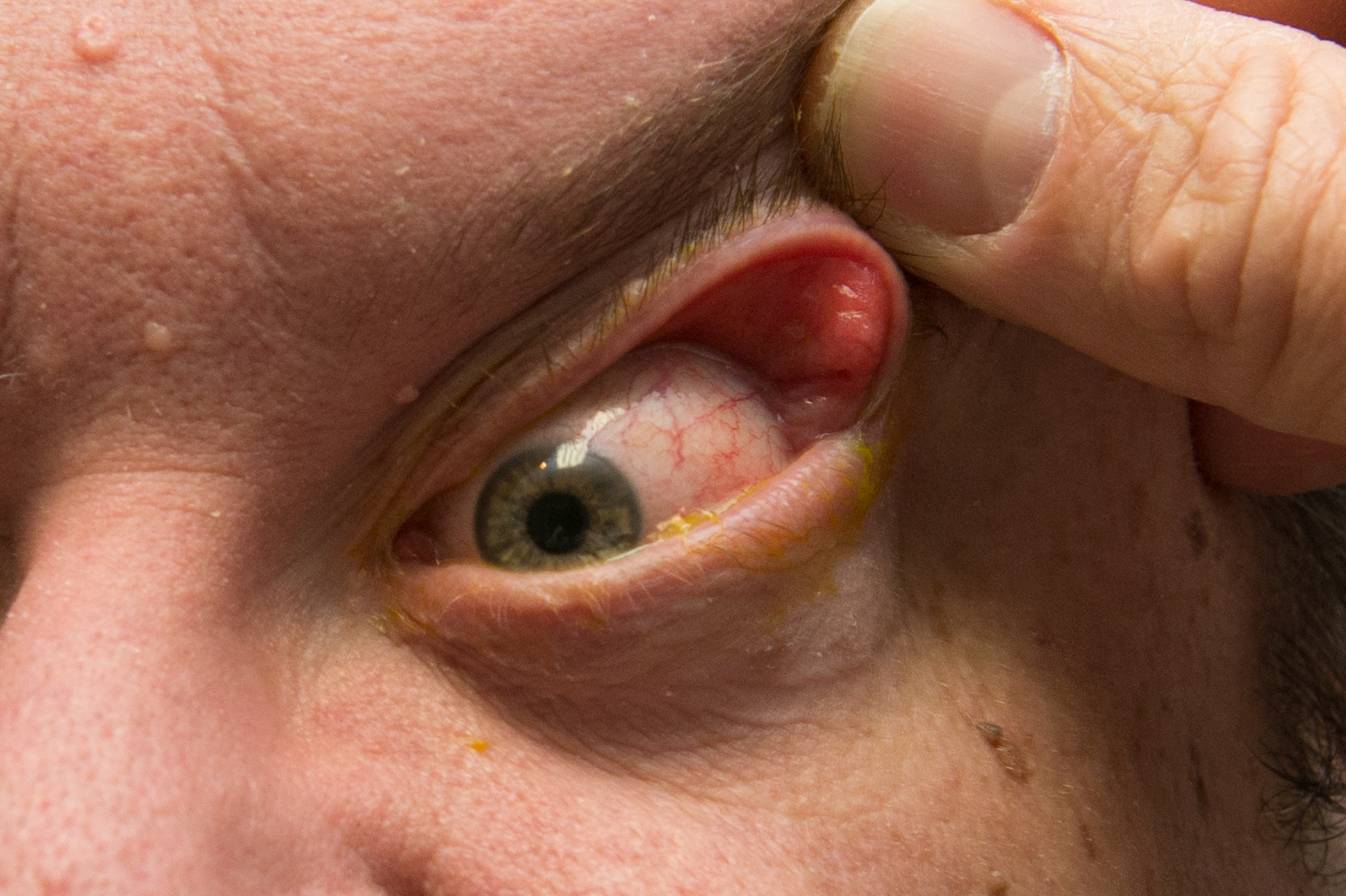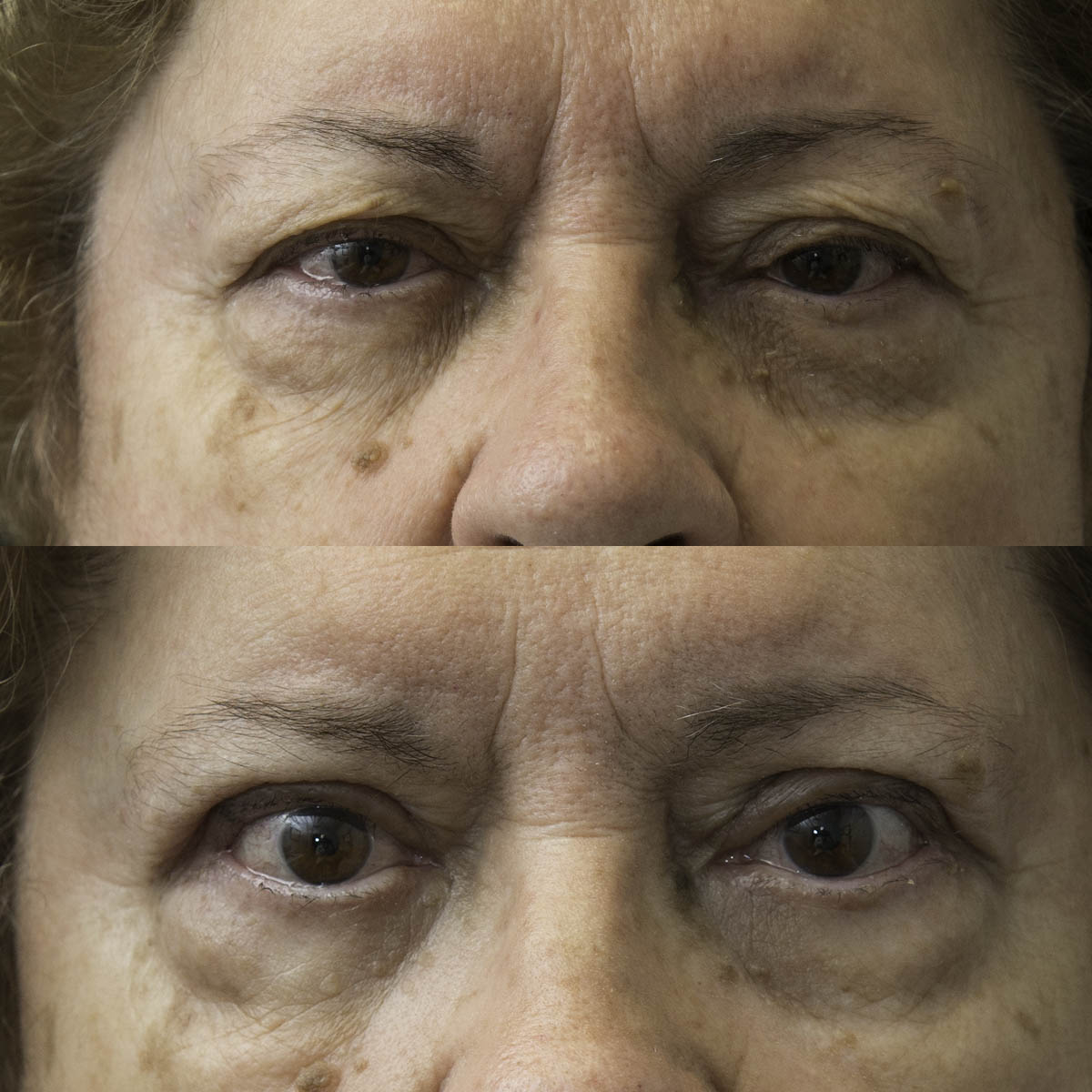
Floppy eyelid syndrome
Floppy eyelid syndrome: What is it?
Floppy eyelid syndrome is a fairly common problem where the eyelids get stretched out and become irritated and red. The eyes also get red and sore, with tearing and mucus mattering being common symptoms. Floppy eyelid syndrome is common in people with sleep apnea, or in those who are overweight or obese. It is due to changes in the tissues where a tissue component called elastin changes or is destroyed, leading to stretchy, floppy skin. The eyelids will then easily flip inside-out, which happens while they are sleeping. This causes the inside of the eyelids to dry out and become inflamed. The inside of the eyelid may even rub on the patient’s pillowcase, causing significant irritation.
Floppy eyelid syndrome: How is it treated?
Early on, patients can use artificial tears for comfort. They can tape the eyelids closed at night to prevent them from flipping inside out. When it becomes more severe, surgery is often necessary to tighten up the eyelids and remove the extra eyelid skin. It is also important to treat any sleep apnea, as this can make the problem worse.
Floppy eyelid syndrome: What does surgery entail?
Typical surgery involves shortening the eyelids horizontally. A wedge of the upper eyelid is removed. Next, redundant upper eyelid skin is removed, similar to a cosmetic eyelid lift or blepharoplasty. Often the eyelashes are rotated upward with specially placed stitches. Sometimes the lower eyelids are tightened in a similar fashion if they also are floppy. Recovery after surgery can be slow since the skin doesn’t heal as fast as normal tissues. Patients have bruising and swelling, which takes several weeks to go away. Complete recovery takes 6-8 weeks.

Before and after floppy eyelid syndrome surgery
Floppy eyelid syndrome: Who can treat it?
Floppy eyelid syndrome should be treated by an oculoplastic surgeon (ophthalmic plastic surgeon). Oculoplastic surgeons are singularly qualified to perform eyelid surgery and correct the problems caused by floppy eyelids. Contact Dr. Matheson Harris at 801-264-4420 for more information.
